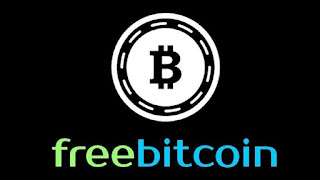Bitcoin Wallet
Bitcoin, for all its intents and purposes, is a digital currency. It does not exist in physical form and hence cannot be stored physically. In order to store bitcoins, you need a bitcoin wallet. Technically speaking, you don’t store bitcoins in the wallet; here’s how it works – every person that owns bitcoin has a bitcoin address, and every bitcoin address can be accessed using a secret ‘private key,’ and this private key is stored in the bitcoin wallet. This allows the user to send, receive and own bitcoins using a bitcoin wallet.
How to Get a Bitcoin Wallet?
You must be full of questions like, “how to make a bitcoin wallet?”, “how to setup a bitcoin wallet?”, or “how to create a bitcoin wallet?” There’s no single way to setup a bitcoin wallet, since there are several different types of bitcoin wallets in existence. In order to understand how you can get a bitcoin wallet for yourself, you need to understand the types of wallets and how effective they are in helping you store bitcoins. Let’s take a look at the types of bitcoin wallets below.
A bitcoin paper wallet is probably the safest option when it comes to susceptibility to hack attacks and malware. It is a piece of paper that has a bitcoin wallet address where you can receive bitcoins and a private key which you can use to send bitcoins. Websites like BitAddress allow you to create a randomized public address and private key which you can then print and use immediately. Obviously, while paper wallets are impervious to digital threats, it is important to protect the piece of paper from real-world threats and theft. It is a free bitcoin wallet.
Web wallets are one of the most commonly used types of wallets in the community. An online bitcoin wallet stores your private key in a server owned by the company that offers such services. Different companies offer different features, and web wallets allow you to access your bitcoins anywhere and anytime. The downside is that the security of your web wallets lies completely with the company.
A desktop wallet is a software you download and install onto your computer. This type of wallet stores your private key and other pertinent information on your hard drive. This makes it more secure than web wallets since you don’t have to rely on another company to keep your wallet safe. These are a great solution for beginners and traders that own a small amount of BTC.
Like a desktop wallet is a software on a computer, a mobile wallet is an app on your smartphone. This app stores your private keys on your smartphone and allows you to pay for things or transfer bitcoin directly from your phone. Just like web wallets, they are an easy-to-use, convenient solution for on-the-go bitcoin transactions, but are quite vulnerable to hack attacks.
A bitcoin hardware wallet stores your private keys in a secure hardware device. This is the most secure way to store bitcoins. Hardware wallets are unaffected by viruses and can be used securely to transfer bitcoin. Unlike the others, this is not a free bitcoin wallet. Buy a model from a trusted manufacturer, like the Ledger Nano S or the Trezor White, and you’ll be all set to transact bitcoins.
What Is the Best Bitcoin Wallet?
You must be wondering which bitcoin wallet to use after reading about them in detail above. Choosing the best bitcoin wallet is easy – all you have to do is take into account your requirements, your store of bitcoins, your budget (if any) and your future plans with the cryptocurrency. If you’re a beginner, a web wallet or a desktop wallet should be enough for you to store your first bitcoin. If you fear hackers and have trust in your ability to protect a piece of paper at all times, a paper wallet is a great option. If you have been doing this bitcoin thing for a while and are looking for a wallet upgrade, there’s no better option than investing a couple hundred bucks and getting yourself a hardware wallet. There are plenty of amazing options to choose from, so choose wisely. All in all, choosing the best bitcoin wallet is dependent on you.






























